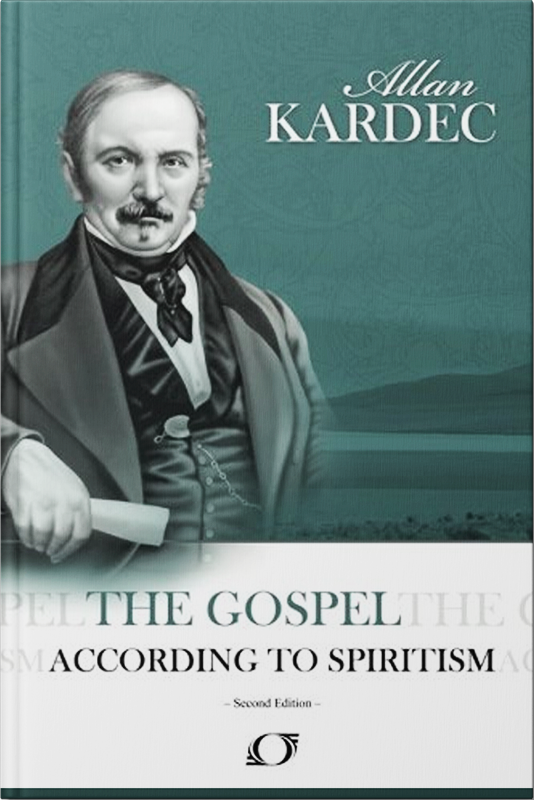Books
The collection of the first five books were written and published by the French educator Allan Kardec (Hippolyte Léon Denizard Rivail) between the years 1857 and 1868.
The series contains the fundamental pillars of the Spiritist Philosophy and are called “The Five Fundamental Works of Spiritism”.
Two other books were published to complement the teachings of Allan Kardec: Qu’est-Ce Le Spiritisme? (“What is Spiritism?”) in 1859 and Oeuvres Posthumes (“Posthumous Works”) in 1890.
The work however, has not been formed by the personal opinion of Allan Kardec or any other person in particular.
It is the result of a collective and concordant series of spiritual communication organised and structured by Allan Kardec.
This is the crux of the philosophy, otherwise, it would be only the ideas of one Spirit in particular, and thus would have only the worth of a personal opinion.
Universality and concordance of the ideas, openness and rationality, such are the essential characters of the Spiritist Philosophy, the very condition of the existence and growth of the philosophy.
Consequently, any principle that has not received the consecration of the test of universality cannot be considered an integral part of such Philosophy, but simply an isolated opinion.
We are very thankful to the International Spiritist Council (ISC) for making this publications available for free download.
Note: The books contained in this website are for reading and consultation only, and their publication is strictly prohibited, by any means, without the prior authorization of the International Spiritist Council (ISC).
By Allan Kardec
The Spirits’ Book
Firstly published in 1857, The Spirit’s Book is the first book of Spiritism and considered the backbone of Spiritism.
Organized in questions and answers, it contains:
- The Principles of Spiritist Philosophy on the Immortality of the Soul
- The Nature of Spirits and their Relations with the corporeal world
- The Moral Laws
- The Present Life, the Future life and The Destiny of the Human Races
Its Introduction explains the new ideas and how Kardec organised the 1019 questions and answers contained in the book.
By Allan Kardec
The Medium’s Book
The Mediums’ Book is the second of the five books comprising the Spiritist Philosophy.
The book presents the teachings of the Spirits on all types of spirit manifestations, the ways of communicating with the invisible world, the different types of mediums, the development of mediumship, and the difficulties and obstacles that may be found in the practice of Spiritism.
Besides being a source of indispensable reading and research for Spiritists, The Mediums’ Book is also an essential source of knowledge for any person interested in the mediumistic phenomenon.
By Allan Kardec
The Gospel According to Spiritism
The Gospel according to Spiritism is the third of the five books that comprise the Spiritist Philosophy.
Explained under the light of Spiritism, it contains the essence of the moral teachings of Jesus, thus providing a foundation for a deeper understanding of progress, and moral development.
By Allan Kardec
Heaven and Hell
The fourth book is divided into two parts:
The first part of the book explains the different perspective Spiritism has on the subject, stating that the concept of “Heaven” and “Hell”, as it is usually understood, is a misconception.
It is also a comparative examination of the various philosophies concerning the passage from the earthly life to spirit-life, rewards and punishments, angels and devils.
The second part of the book presents a collection of communications from spirits after death, providing an insightful perspective on life after death.
By Allan Kardec
Genesis
The fifth book of the Philosophy is a study of three areas that have until today been diversely interpreted and commented upon: Genesis, Miracles and Predictions.
By demonstrating the existence of the spirit world and its relations with the material world, Spiritism provides the key to a multitude of misunderstood phenomena, which, for that very reason, have been regarded as unbelievable by many people.
It reconciles science and religion and develops a series of important scientific and philosophical topics, relating them to Spiritism.




